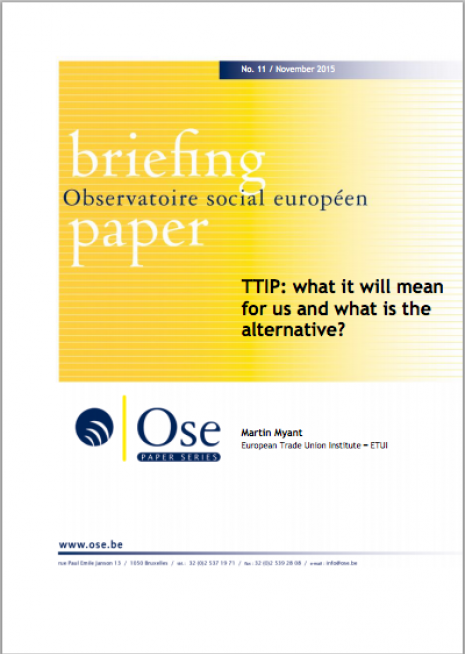
TTIP: what it will mean for us and what is the alternative?
The OSE recently published a paper explaining the challenge of the Transatlantic Trade and Investment Partnership (TTIP) and the impact it could have on the EU citizens.
The Transatlantic Trade and Investment Partnership has been under negotiation between the European Union (EU) and the USA since July 2013. The eleventh round of talks ended on 23 October 2015.
TTIP has already provoked more public opposition and doubts than has been the case with any previous international trade agreement. Thanks to the strength of that opposition, a little more openness in the negotiation process was shown. We now know what the negotiations cover, in broad terms.
This Opinion paper describes why the negotiating parties want a Transatlantic Trade and Investment Partnership (TTIP), what the agreement will contain and what trade liberalisation may lead to.
It argues that TTIP offers no improvements in economic or social conditions for European citizens.
The Partnership, including the notorious Investor state dispute settlement, threatens a reduction in protection for employees and consumers and a substantial enhancement of the power of private business, potentially at the expense of public provision of services.
If the Partnership is to be continued at all, then it should do so with the exclusion of the Investor-state dispute settlement (ISDS) and with changes to ensure against reduction in regulatory protections through attempts to achieve compatibility.

